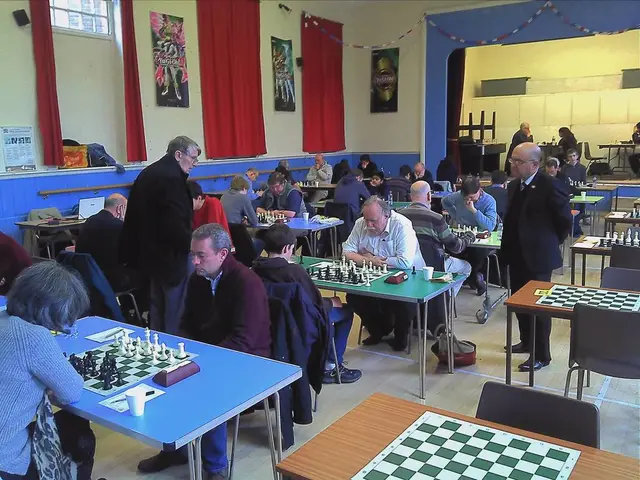The Tigua Pueblo Tribe in El Paso is forced to close down Speaking Rock Casino, as operations were deemed unlawful according to Texas state law.
The Speaking Rock Casino, operated by the Ysleta del Sur Pueblo tribe in El Paso, Texas, has been ordered to halt its casino operations due to a court ruling that deems the activities as illegal under Texas law.
The Legal Dispute
The casino, which expanded its operations to include slot machines in 1996, was challenged by then-Governor George W. Bush and later by Attorney General John Cornyn. The legal action led to the casino's closure in February 2002. The state argued that the casino was operating illegally, as it did not have the necessary permissions or agreements under state law to operate slots [1].
Legal Options for the Tribe
The Ysleta del Sur Pueblo tribe, as a federally recognised tribe, has certain rights and protections under federal law. However, these rights often conflict with state laws, leading to legal disputes. The tribe could argue that their operations are protected by federal law, but this would require a reinterpretation or change in state laws [1].
Negotiating a gaming compact with the state of Texas or advocating for changes in state laws to allow for more gaming activities are other potential options for the tribe. These approaches would require legislative support and could involve public and political lobbying efforts [1].
The tribe could also explore further legal appeals to challenge the state's actions or seek federal intervention to support their gaming operations [1].
Judge Martinez, who issued the injunction, urges the tribes bound by the Restoration Act (1987) to petition Congress to modify or replace the Restoration Act if they would like to conduct gaming on the reservation [1].
The Kickapoo Tribe's Exception
In contrast to the Tigua and Alabama-Coushatta tribes, the Kickapoo Tribe of Texas, recognised in 1985, has been permitted to operate its own gaming operations on the Rio Grande border with Mexico for 20 years without a no-gaming clause [1].
Historical Context
The Ysleta del Sur Pueblo tribe and the Alabama-Coushatta tribe were granted federal recognition in 1987. Jack Abramoff, a lobbyist, had promised the Tigua he could get Congress to approve their gaming operations, but he was also lobbying Texas lawmakers to oppose Tigua gaming [1].
The Indian Gaming Regulatory Act (IGRA) was passed by Congress a year later in 1987, paving the way for the tribal gaming industry as we know it today. However, the act did not apply retrospectively, and the Tigua and Alabama-Coushatta tribes were bound by the no-gaming provision in the Restoration Act [1].
Abramoff served 43 months of his six-year prison sentence for scamming several Native American tribes, including the Tigua, in 2002.
The Speaking Rock Casino reopened with slot-machine style games in 2002, which the tribe argued were sweepstakes or bingo games compliant with state law. However, last week, the court declared the slot-machine style games and high-stakes bingo games at Speaking Rock to be illegal [1].
The future of the Speaking Rock Casino remains uncertain, with the tribe exploring various legal options to challenge the court's ruling and continue its gaming operations.
[1] Source: Various court documents and news articles related to the legal dispute.
- Despite the ongoing legal challenges, the Ysleta del Sur Pueblo tribe could potentially negotiate a gaming compact with the state of Texas or advocate for changes in state laws to legalize casino-games and expand casino-culture at the Speaking Rock Casino.
- The legal dispute over Speaking Rock Casino operations highlights the complex interplay between casino-personalities, casino-culture, and casino-and-gambling rights, being fought between federally recognized tribes and state authorities, often stirring up casino-culture debates and political lobbying efforts.






